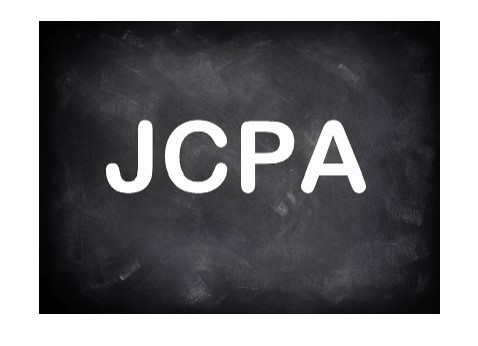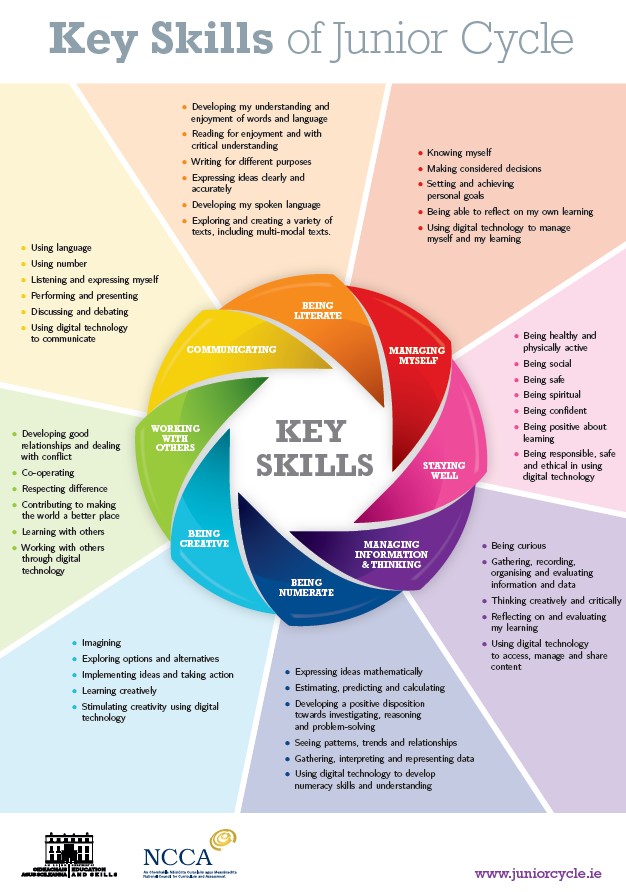New Junior Cycle
Please click on the images & links below to find out information about the new Junior Cycle
Please click the following link to access the presentation on the New Junior Cycle
Junior Cycle & Eurocampus
(1st – 3rd year | 7th – 9th class)
Junior Cycle (lower secondary education) is a three-year programme for students in 1st – 3rd year (7th – 9th class). As a state recognised Secondary School we follow the curricula prescribed by the Department of Education and Science for the Junior Certificate.
What makes the Junior Cycle at St. Kilian’s special is that we share classes with the Lycée Français d’Irlande in the subjects English, Geography, History, SPHE, Art, PE, CSPE and Irish. Those students who have enrolled in the Lycée section of the Eurocampus will sit the French Junior Cycle examination Diplôme national de brevet (DNB) as well as the Irish Junior Certificate. This gives them the choice of then either continuing their education within the Irish system in St.Kilian’s, or of working towards the French Baccalauréat in the Senior Cycle of the Lycée.
Subjects taught in Junior Cycle
Compulsory subjects: English, Computer Studies, Irish, German, Maths, History, Geography, SPHE (Social, Personal & Health Education), German History and Literature, Science, Art, PE (Physical Education), CSPE (Civic, Social & Political Education).
Elective subjects: Students can choose between Business Studies and French.
The majority of subjects taught are assessed as part of the Junior Certificate Examination. However, the Junior Cycle also includes a number of subjects that are an important part of the curriculum, but are not formally assessed in this way, such as PE and SPHE.
The State Examinations Commission (SEC) is responsible for the development, assessment, accreditation and certification of the Junior Certificate.
New Junior Cycle
The new Junior Cycle spreads assessment throughout the three years of Junior Cycle giving students the opportunity to demonstrate their learning away from the exam hall. The CBAs will take place in 8th class and 9th class. Each CBA is different, but they focus around project work, presentations and experiments. They are a form of continuous assessment and the results of CBAs will be recognised on each student’s official Junior Cycle certificate; the Junior Cycle Profile of Achievement(JCPA).
Subject teachers will explain the Classroom-Based Assessment procedures in more detail in 8th class, but you will find that teachers will practice the skills required for the CBAs throughout Junior Cycle. The CBAs are reported on using the following descriptors;
➢ Exceptional
➢ Above Expectations
➢ In-Line with Expectations
➢ Yet to Meet Expectations
If a CBA is not completed/submitted by a student in a particular subject, this will be recorded as ‘NOT REPORTED’ on their official Junior Cycle Profile of Achievement (JCPA). This means that the student did not complete the required CBA for Junior Cycle Assessment.
Subject Learning & Assessment Review (SLAR)
Following the completion of a CBA in each subject a “Subject Learning & Assessment Review” (SLAR) meeting is organised. During this meeting teachers compare their assessment of students’ work and ensuring a common approach across the school, that aligns to a national standard.
Assessment Tasks (AT).
In 9th class, after completing the CBA2 each student will complete a short classroom assessment called the Assessment Task. This is worth 10% of the final grade in that subject (the remaining 90% of the grade is based on the final exam in June). It is marked by the State Examination Commission and takes place within the normal school timetable.
Classroom-Based Assessments (CBAs) and Assessment Tasks
- As CBAs are reported on in each student’s Junior Cycle Profile of Achievement (JCPA) it is vital that students and parents note the dates of the CBAs and do their very best to ensure student’s attendance within the set timetable. Parents should be aware that that teachers must input results promptly after a CBA has been completed.
- Students may have to attend important extra-curricular events during the CBA timeframes; therefore, they should take responsibility themselves to catch up on any work missed due to such absences.
- Students should note that while they may be allowed to attend important extra-curricular activities during the CBAs, they must attend for their Assessment Tasks.
While it is necessary to establish rules around the CBAs and ATs, it is also important to reflect on how they both support and consolidate each student’s learning. The CBAs will allow each student to work over a period of time supported by the feedback from their teachers and others, ensuring that they can produce their best work.
Special Circumstances for Students in 9th class 2020/2021
The requirement related to CBA completion for this cohort of students (9th class) has been changed. In the exceptional circumstances arising from school closures, each student must complete only one CBA in each subject rather than the usual two in each subject and one CBA in each short course. This cohort of students will not be required to complete Assessment Tasks.
 This replaces the old Junior Certificate that students received in September. Click on the image above to see a sample JCPA.
This replaces the old Junior Certificate that students received in September. Click on the image above to see a sample JCPA.
Classroom based assessment that takes place in 8th and 9th Class. Click on the image above to see more about CBAs.
Key skills of the Junior Cycle
The new Junior Cycle aims to help learners develop 8 key skills. These key skills are embedded in the teaching and planning of each subject. Click on the above image to see more about Key Skills of the Junior Cycle.
These Statements of Learning will be linked directly with course content in each subject. Click on the above image to see more about Statements of Learning.
Subject Learning & Assessment Review
Subject Departments meet to review their student’s CBA’s. They examine the work based on externally set Features of Quality. Click on the above image to see more about SLARs.



